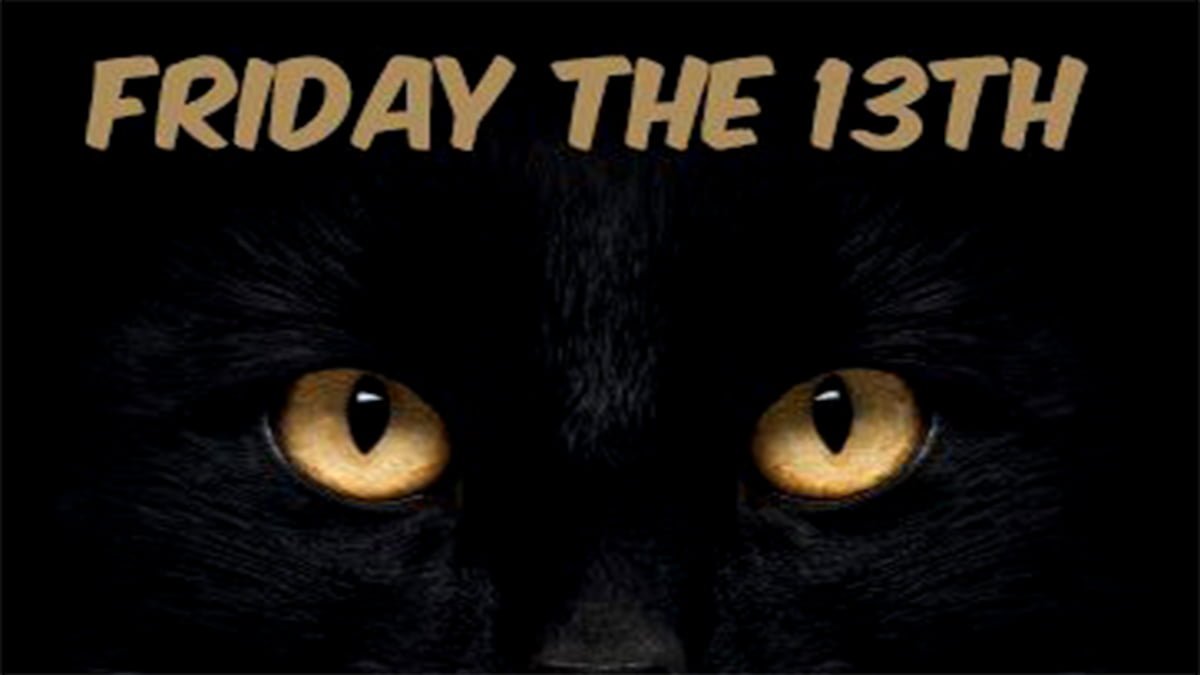Facts & Trivia
Friday The 13th: Myths, Superstitions, Trivia Facts About The Unlucky Day


Today is Friday the 13th, widely accepted in Western culture as being the unluckiest day on the calendar. Here are five fast facts about Friday the 13th:
1. Friday the 13 may fall more than once a year. This year, it came twice once in January and now in October. Next year also it will fall twice, in April and in July. Some year also go by without at least one Friday the 13.
2. Many believe that the date 13 is unlucky but there is no hard evidence about this. “No data exists and will never exist to confirm that the number 13 is an unlucky number,” Igor Radun, of Finland’s Human Factors and Safety Behavior Group, told LiveScience in 2012. “There is no reason to believe that any number would be lucky or unlucky.”
3. As many fear this day as the day of the dead, this day has been a widespread success for the movie industry. The “Friday the 13th” horror film franchise kicked off in 1980 and it’s now up to 12 sequels. Many people also chose to watch horror films on this day.
4. It’s not that only the date 13th has been considered as unlucky. The day, Friday also has a longstanding stigma in the Christian faith. Jesus was notoriously crucified on a Friday, the flood with Noah’s ark began on a Friday and the story about the original sin of Adam and Eve occurred on a Friday.
5. The fear of Friday the 13th is known as friggatriskaidekaphobia which is also called paraskavedekatriaphobia. Those who don’t mind Friday, but fear the No. 13, have triskaidekaphobia.
Myths and Superstitions about Friday the 13th:
1. A child born on Friday the 13th will be unlucky for life.
2. If someone cuts his/her hair on Friday the 13th, someone in the family might die.
3. If a funeral procession passes a person on Friday the 13th, that person could be the next to die.
4. Starting a trip on Friday could make someone encounter misfortune.
5. Breaking a mirror on this could bring seven years of bad luck.
6. Ships that set sail on a Friday will have bad luck.
7. If a black cat crosses someone on Friday the 13th, then it could bring bad luck.
History and Origins of Friday the 13th
The origin of fears surrounding Friday the 13th is unclear but superstitions surrounding the number 13 date back to at least 1700 BC. In the ancient Babylon’s Code of Hammurabi, dating to about 1772 BC, the number 13 is omitted in the list of laws.
There has also been a longstanding myth that if 13 people dine together, one will die within a year. This has originated from both the Last Supper, when Jesus dined with the 12 Apostles prior to his death, and a popular Norse myth, in which 11 close friends of the god Odin dine together only to have the 12-person party crashed by a 13th person, Loki, the god of evil and turmoil.
In 1881, an organization was started called The Thirteen Club in an attempt to improve the number’s reputation.
The number 13 has an unlucky association even today becuase of which many cities do not have a 13th Street or a 13th Avenue, many high-rise buildings avoid having a 13th floor, some hospitals avoid labeling rooms with the number 13 and many airports skip gate 13.
The first recorded reference in English of Friday the 13th is in Henry Sutherland Edwards’ 1869 biography of Gioachino Rissini, where Edwards writes: “Rossini was surrounded to the last by admiring and affectionate friends; Why Friday the 13th Is Unlucky.”
Friday the 13th was also mentioned in the popular 2003 novel, “The Da Vinci Code.” In the book, a connection is drawn between the slaughtering of the Knights Templar by the Church and Friday the 13th.














